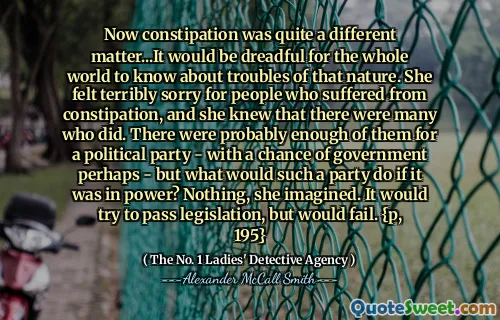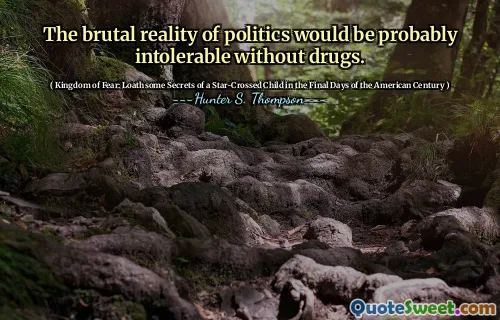
This proves what a purifying effect women would have on politics.
The quote highlights a perspective that suggests women's participation and influence in politics would bring about positive change and integrity. Historically, politics has often been associated with corruption, power struggles, and divisiveness. Imagining women exerting a 'purifying' effect implies that their involvement could introduce values like compassion, empathy, collaboration, and ethical reasoning, which might counterbalance traditional political flaws. This statement also hints at the gender biases prevalent at the time when such ideas gained prominence—viewing women as moral anchors or moral reformers who could temper the often brutal or self-serving nature of politics. While it is somewhat idealized, it underscores an important conversation about the potential contributions women could make to the political arena. Politics deeply impacts societies at every level, and integrating diverse perspectives is vital for democratic health and social progress. The quality of political discourse and decision-making can benefit from the inclusion of perspectives rooted in caring and community-oriented values. Women’s increasing participation in politics over the years has shown the value of different approaches to leadership and governance. Recognizing the 'purifying' potential is a reminder of the importance of gender equality and embracing the strengths women bring to leadership roles. Ultimately, the quote invites reflection on how societal norms and values shape our political institutions and the importance of inclusivity in shaping a just and equitable society.











